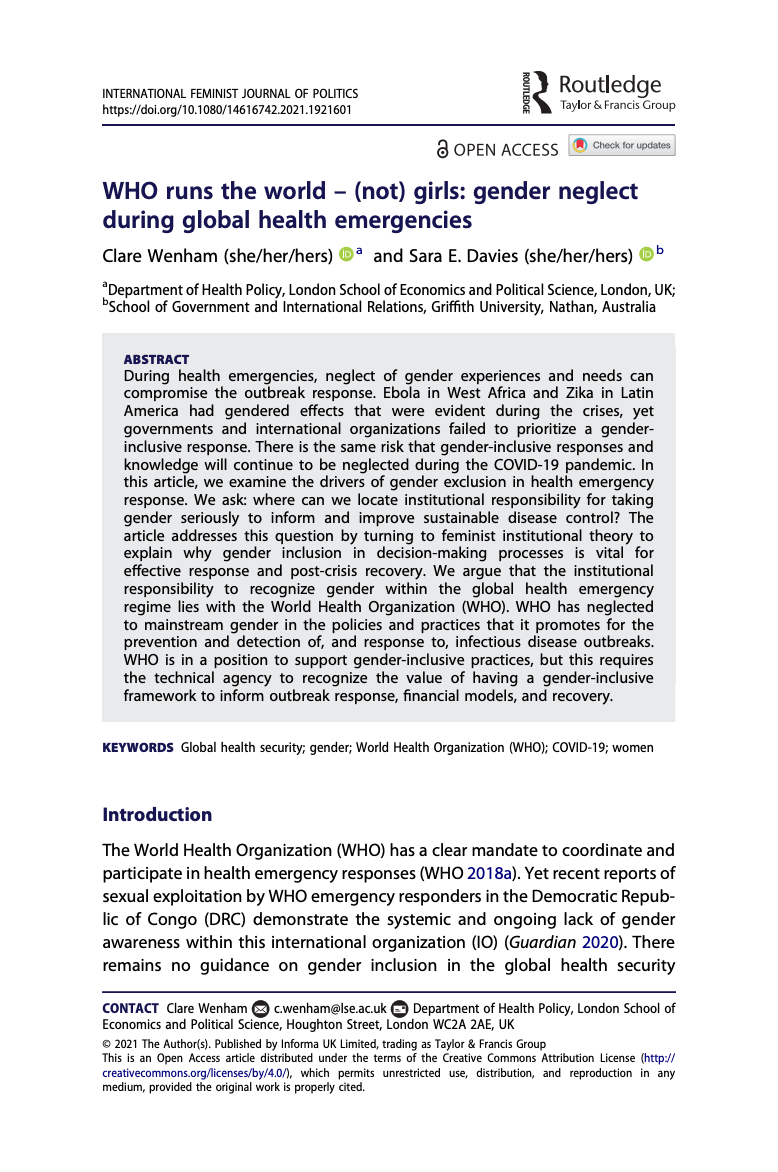During health emergencies, neglect of gender experiences and needs can compromise the outbreak response. Ebola in West Africa and Zika in Latin America had gendered effects that were evident during the crises, yet governments and international organizations failed to prioritize a gender-inclusive response. There is the same risk that gender-inclusive responses and knowledge will continue to be neglected during the COVID-19 pandemic. In this article, we examine the drivers of gender exclusion in health emergency response. We ask: where can we locate institutional responsibility for taking gender seriously to inform and improve sustainable disease control? The article addresses this question by turning to feminist institutional theory to explain why gender inclusion in decision-making processes is vital for effective response and post-crisis recovery. We argue that the institutional responsibility to recognize gender within the global health emergency regime lies with the World Health Organization (WHO). WHO has neglected to mainstream gender in the policies and practices that it promotes for the prevention and detection of, and response to, infectious disease outbreaks. WHO is in a position to support gender-inclusive practices, but this requires the technical agency to recognize the value of having a gender-inclusive framework to inform outbreak response, financial models, and recovery.
Wenham C and Davis S (2021) WHO runs the world – (not) girls: gender neglect during global health emergencies, International Feminist Journal of Politics, DOI: 10.1080/14616742.2021.1921601






